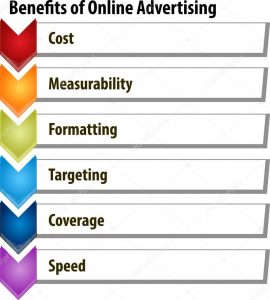The financial market has offered a wide range of great investment options anyone can benefit from. Irrespective of your gender, income and status. All you need do is try out the best investment options that will work best for you and preserve or grow your money
1. High-yield savings accounts
Higher rates of return are offered by online savings accounts and cash management accounts than by regular bank savings or checking accounts. Cash management accounts resemble a mix of a checking and a savings account. These accounts often come with debit cards or checks. They may offer interest rates similar to savings accounts, however they are typically offered by brokerage firms. The greatest savings accounts are for short-term investments or money. This is money that you only infrequently need access to, like an emergency or vacation fund. Six withdrawals from a savings account are permitted each month. Accounts for managing cash flow provide additional flexibility and, occasionally, higher interest rates.
If you’re new to saving and investing, a reasonable rule of thumb is to retain three to six months’ worth of living expenses in an account like this before dedicating more toward the investment items lower on this list. Rates for cash management accounts are competitive at robo-advisors and investment firms like Betterment and SoFi. You can earn interest on your cash balance in a high-yield online savings account. High-yield online savings accounts are accessible vehicles for your money. It works just as a savings account yielding pennies at your physical bank. Additionally, you can frequently access the funds by immediately moving them to your principal bank or sometimes even using an ATM.
risk
For people who may soon require access to money, a savings account is a suitable option. For risk-averse investors, particularly those who require money immediately and want to minimize the possibility that they won’t get it back, a high-yield savings account is a good option. You don’t have to be concerned about your deposit being lost because the banks that provide these accounts are FDIC-insured. Although high-yield savings accounts are regarded as safe investments, similar to CDs, if rates are too low you face the danger of losing procurement power over time due to inflation.
2. Certificates of deposit
A certificate of deposit, sometimes known as a CD, is a type of federally insured savings account that provides a fixed interest rate for a certain period of time or a greater interest rate than other types of savings accounts. A CD is for money that you are certain you will need at a specific future time.
With typical terms of one, three, and five years, CDs might be a smart choice if you’re looking to safely grow your money for a certain purpose within a defined time frame. However, it’s vital to keep in mind that you’ll probably have to pay a fee if you want to withdraw your money from a CD early. Don’t put money you could need soon, like you wouldn’t with other investments, in a CD. And if you anticipate an increase in interest rates, choose short-term. Short-term CDs can be a better choice because they allow you to reinvest at a greater rate when the CD matures.
The maturation dates for these time deposits, which are federally guaranteed, might range from a few weeks to several years. These are “time deposits,” so you can’t withdraw the money without incurring fees for a set amount of time. With a CD, you receive interest payments from the financial institution on a monthly basis. You receive your initial money back along with any accumulated interest once it matures. Retirement investors who are able to lock their money away for a while and don’t require immediate income may find CDs to be a viable option because of their safety and greater returns.
Risk
CDs are regarded as risk-free investments. However, there is a reinvestment risk associated with them, which is the possibility that as interest rates decline, investors would earn less when they reinvest their principal and interest in new CDs with lower interest rates. The risk that rates may increase, but investors won’t be able to benefit since their money has already been committed to a CD, is the contrary. And in 2022, rates are predicted to increase much more. It’s crucial to remember that taxes and inflation could drastically reduce the purchasing power of your investment.
3. Money market funds
Money market mutual funds are a type of investment, as opposed to money market accounts, which are savings-account-like bank deposit accounts. Your money purchases a collection of high-quality, short-term government, bank, or corporate debt when you invest in a money market fund.
Money market funds are also used by investors as a holding container for cash designated for future investments or to hold a portion of their portfolio in a safer investment than stocks. Although technically an investment, money market funds won’t provide the higher returns (and higher risk) of the other options on this page. Growth in money market funds is more comparable to yields on high-yield savings accounts. Money market mutual funds can be acquired directly from a mutual fund company or a bank, but an online discount brokerage will have the most selection.
4. Government bonds
A government bond are mutual funds or ETFs. It is a loan that you make to a government agency that will pay interest to investors over a predetermined time frame, usually one to thirty years. Bonds are referred to as fixed-income securities because of this consistent source of payments. Due to the U.S. government’s complete creditworthiness, government bonds are essentially a risk-free investment.
Government bonds offer less of a return than other investment options in exchange for that safety. It would be much more difficult to reach your retirement or long-term goals if your portfolio consisted solely of bonds. For cautious investors who would rather have less volatility in their portfolio, it is optimal. Bonds are popular among investors who are approaching or have reached retirement because of their fixed income and decreased volatility. These people do not have a long enough investment horizon to withstand sudden or significant market falls. You can purchase individual bonds through a broker, the underwriting investment bank, the U.S., or bond funds that hold a variety of bonds to provide diversification.
Beginning investors and those seeking cash flow may find these funds to be a useful option.
Risk
Investors that are risk averse may benefit from government bond funds. Albeit, some categories of funds, such as long-term bond funds, may fluctuate significantly more than short-term funds. This happens due to changes in the interest rate.
The price of current bonds decreases when interest rates rise, and increases when interest rates fall. However, the risk of interest rates is higher for long-term bonds than it is for short-term bonds. Rising rates will have little effect on short-term bond funds. Hereby the funds will gradually raise their interest rate as market rates climb. But if inflation is high, the interest rate might not keep up, and your purchasing power would decline.
5. Corporate bonds
The main difference between corporate bonds and government bonds is that you are lending money to a firm rather than to the government. Since the government does not guarantee these loans, they are a riskier choice. The risk/return profile of a high-yield bond, can actually be significantly higher and more similar to that of stocks than bonds.
The ideal investors for it are those who are willing to take on a little bit more risk in exchange for a fixed-income instrument with prospective yields higher than those of government bonds. In the case of corporate bonds, the yield increases with the probability that the company will fail. In contrast, the yield on bonds issued by established, major corporations would often be lower. The investor is responsible for determining the risk/return ratio that works best for them. You can purchase corporate bond funds or individual bonds through an investment broker, just like you do with government bonds.
6. Mutual funds
In order to purchase stocks, bonds, or other assets, a mutual fund collects money from investors. Mutual funds provide investors with an affordable opportunity to diversify. Hereby spreading their money over a variety of investments to protect themselves against the losses of any one investment.
Mutual funds are an easy method to gain exposure to the stock market’s superior investing returns if you’re saving for retirement or another long-term goal without having to own and maintain a portfolio of individual equities. Some funds restrict the types of businesses they invest in to those that meet certain requirements, such as biotech technology firms or businesses with large dividend payouts. You can then concentrate on specific investing niches as a result.
Direct purchases of mutual funds can be made via the organizations in charge of managing them as well as through cheap brokerage houses. Nearly all of the mutual fund companies we assess feature no-transaction-fee mutual funds in addition to fund selection tools. Be aware that most mutual funds have an initial minimum investment requirement of $500 or more, however some providers will remove the need if you agree to set up automatic monthly investments.
7. Index funds
A type of mutual fund known as an index fund holds the equities included in a specific market index. In contrast to an actively managed mutual fund, which pays a professional to select the fund’s assets, the goal is to offer investment returns similar to the performance of the underlying index. Some of the finest investments for long-term savings objectives are index mutual funds. Index mutual funds are less volatile than actively managed funds that aim to outperform the market, in addition to being more affordable due to reduced fund management fees.
Young investors with a long time horizon may benefit most from index funds since they can devote more of their portfolio to higher-returning stock funds than to more conservative products like bonds. Data from the stock market may be up to 20 minutes behind and is only meant to be used for informative purposes, not for trading. Direct purchases of index funds from fund companies or through bargain brokers are both options.
8. Exchange-traded funds
In that they pool client funds to purchase a variety of securities, exchange-traded funds, or ETFs, are similar to mutual funds in that they offer a single diversified investment. The way they are sold is different; investors purchase shares of ETFs just like they would individual stocks.
ETFs are a wise investment if you have a lengthy investing horizon, just as index funds and mutual funds. Additionally, because an ETF share price may be less than a mutual fund minimum: ETFs are the best option for investors who lack the funds necessary to meet the mutual fund’s minimum investment criteria. ETFs are offered by bargain brokerages and have ticker symbols similar to stocks. ETFs are also used by robo-advisors to build client portfolios.
9. Dividend stocks
Dividend stocks can offer both the growth of individual stocks and stock funds as well as the fixed income of bonds. Dividends, which businesses regularly pay to shareholders, are frequently linked to dependable, successful businesses. Even while the share prices of some dividend stocks may not increase as much or as quickly as those of growth-stage businesses, investors may find them appealing due to the dividends and stability they offer. Remember that dividends received in taxable brokerage accounts are taxed in the year they are received. Stocks, on the other hand, are subject to primary taxation only when they are sold.
who can invest
Any investor, from a novice to a retiree, can benefit from dividend stocks. This depends on where you are in your investing career, some may be preferable to others. Young investors, for instance, would be well advised to research dividend growers, which are businesses with a proven track record of steadily raising their dividend payments. These businesses might not currently have high yields, but if their dividend growth continues, they might in the future. This can produce returns that resemble those of growth stocks without dividends over an extended period of time.
Stocks that consistently pay dividends may be an option for older investors seeking greater stability or fixed income. Reinvesting these earnings over a shorter period of time could not be the intention. A fixed-income investment strategy instead might call for taking the dividends as cash. Similar to other items on our list, using an online broker is the simplest approach to purchase dividend stocks. With stocks that pay dividends, even your stock market investments might become a little bit safer. Individual stock purchases, dividend-paying or not, are better suited for experienced and intermediate investors. However, you can lower your risk by purchasing a number of them in a stock fund.
Risk
Dividend stocks carry risk, just like any equity investments. Although they are regarded as being safer than growth stocks or other non-dividend stocks, you should take care when selecting them for your portfolio. Instead of choosing firms with the highest current yield, make sure you invest in those with a track record of dividend increases. That might portend impending trouble. However, even well-regarded corporations are susceptible to financial crises. A positive reputation is ultimately no guarantee that the company won’t cut or eliminate its dividend. By purchasing a dividend stock fund with a diverse portfolio of assets, you can lessen your dependence on any one firm and remove many of these dangers.
10. Individual stocks
A share of ownership in a corporation is represented by a stock. Stocks have the highest level of volatility while providing the best possible return on your investment. These words of warning are not intended to make you steer clear of stocks. Instead, they are intended to direct you toward the diversity that purchasing a group of companies through mutual funds, as opposed to doing so individually, provides. Best for those who are willing to take on a little bit more risk and have a well-diversified portfolio. A solid rule of thumb for investors is to keep their individual stock holdings to 10% or less of their whole portfolio due to the volatility of individual equities.
Through an online discount broker, purchasing stocks is the most convenient and affordable option. You can select your order type and become a legitimate shareholder once you set up and finance an account.
11. Alternative investments
There’s a good likelihood that your investment belongs to the alternative assets class if you’re not investing in stock, bonds, or cash equivalent assets. This includes precious metals like gold and silver, cryptocurrencies like Bitcoin and Ethereum, private equity and hedge funds, as well as paper money, liquor, and fine art. A type of digital, electronic-only currency called cryptocurrency is designed to serve as a medium of exchange. Particularly in the last several years, it has grown in popularity as investors poured money into the asset, driving up prices and luring more traders to the market. It’s not protected by the FDIC or the ability of a government or business to generate money, in contrast to the other assets listed above. The only factor influencing its value is what buyers are willing to pay.
The rise of alternative investments increased in the years after the Great Recession, when both bondholders and stockholders experienced sharp declines in their funds. But as alternative investments are frequently made with unregulated products that are prone to volatility, this is to be expected. Best for Investors who wish to diversify away from conventional assets and protect themselves against declines in the value of stocks and bonds.
The majority of alternative investments are only accessible through private wealth management companies. Only certain online brokers will provide access to some alternative assets. However, there are ETFs that track the asset itself as well as businesses associated with the asset, such as gold and private equity ETFs.
Risk
Cryptocurrency is extremely risky. Some of those dangers, like being outlawed or tightly regulated, may make any one currency completely worthless. The price of digital currencies is totally determined by what traders are willing to pay and may fall or rise rapidly even over very short time frames. Given certain high-profile crimes in the past, traders also face a small chance of being hacked.
12. Real estate
In traditional real estate investing, a property is purchased with the intention of eventually selling it for a profit. Or being owned with the intention of receiving rent as a steady source of income. However, there are a number of additional, much more passive ways to invest in real estate. Through real estate investment trusts is one typical method. These businesses offer recurring dividend payments and own properties that generate money. Most suitable for investors who already have a strong investment portfolio and are trying to diversify it further. Or those who are willing to take on greater risk in an effort to increase returns. Investors shouldn’t invest any money they might need to access fast because real estate investments are extremely illiquid.
Some REITs are exclusively offered in private markets. Others can be bought on the public stock market through an online stockbroker. In a similar vein, some sites for crowdsourcing are only accessible to accredited investors. Others don’t impose any restrictions on who can contribute.
How to choose the right investments
Starting to accumulate wealth with the investments mentioned above is possible at any age and with any level of income. The secret is to select the appropriate investments for you based on the following factors.
- Your timeframe. Money set aside for immediate necessities should be simple to get to and invested in a secure and reliable manner. You have more freedom to invest in riskier assets when working for long-term objectives.
- Your capacity for risks. The potential long-term reward increases with the level of risk you’re ready to accept. This happens when you subject your funds to the short-term fluctuations of the stock market. Your investment returns will be more uniform if you divide your funds among various investment types.
- How much cash you possess. There are minimum balance and/or initial investment requirements for some investments. However, if you know where to look, you can find suppliers and workarounds that can suit the majority of investment budgets.
- How much support you require. By opening a brokerage account, Individual investors can gain access to many of the investments mentioned above. If you’re unsure of which assets are appropriate for your situation, you can use a robo-advisor. It is a low-cost automated service, to create an investment portfolio for you. Although they can differ from company to company. Robo-advisors are often online businesses that offer automated portfolios based on your preferences.




